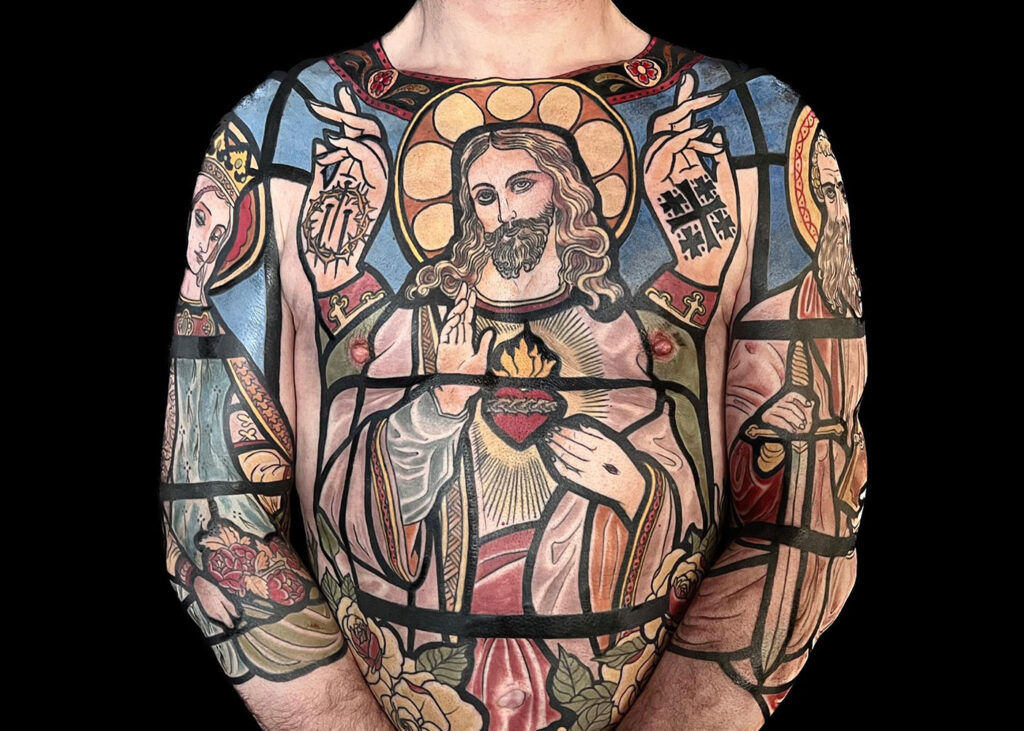Introduction:
Tattoos, an ancient art form, are now becoming more common and popular in modern society. However, tattoo culture is not without its limitations. There are many tattoo taboos, or Tattoo taboos, within different religious beliefs and cultural traditions.This article will look at some of the main taboos within tattoo culture, including religious and cultural restrictions, choices of tattoo placement and content, and the problems that tattoos can cause on a social and family level.
I. Religious and cultural tattoo taboos:
Religious and cultural tattoo taboos are situations where tattoos may be subject to a number of restrictions, taboos or prohibitions in different religious beliefs and cultural traditions.
hese taboos may relate to the content of the tattoo, its location, and the attitude towards tattoos. Below is a detailed explanation of religious and cultural tattoo taboos:
A. Attitudes and taboos of different religions towards tattoos:
CHRISTIANITY: In some Christian denominations, tattooing may be seen as a desecration of the God-given body, as the body is considered to be God’s creation and should be left in pristine condition.
Islam: In Islam, tattooing is often seen as inappropriate behavior because it may alter the image of the body created by God. Especially in some conservative Muslim communities, tattoos may be strictly forbidden.
Buddhism: In Buddhism, individual sects differ in their attitudes toward tattoos. Some Buddhists believe that tattooing is not a positive practice because it goes against the idea of physical and inner self-liberation.
Hinduism: In Hinduism, tattooing may be seen as an act that destroys the integrity and cleanliness of the body. However, there are some Hindus who view tattoos as a religious ritual used to express devotion and faith.
B: Respect the tradition and meaning of tattoos in different cultures:
Tattooing traditions in different cultures have unique meanings and symbols. In Maori culture (New Zealand’s indigenous people), tattoos are known as “taki” and are a traditional symbol of community identity.
Respecting the tattoo taboos of these traditional cultures means not imitating or abusing the meaning of these traditional tattoos.
In traditional Japanese culture, tattoos (irezumi) have a deep history and significance and are often associated with yakuza organizations (thugs). As a result, tattoos are widely seen as symbols of bad image and social status in Japanese society, and respecting this cultural tattoo taboo means avoiding the act of displaying tattoos in Japan.
C.Consider the cultural clash that tattoos can cause:
In some multicultural societies, tattoos may give rise to cultural conflicts. For example, in countries or regions with multiple religious beliefs and cultural backgrounds, some tattoos may be perceived as offensive or disrespectful to the beliefs and values of other groups.
When traveling or residing abroad, the content and meaning of tattoos may be misunderstood or cause unnecessary problems. It is therefore important to consider the cultural conflicts that tattoos may cause in cross-cultural environments.




II.Choice of tattoo location and content
Choosing the location and content of a tattoo is an important factor that tattooists need to carefully consider. The location of a tattoo may affect how it is perceived. Placing a tattoo in an area that is considered inappropriate in some societal perceptions may cause unnecessary controversy or offense to others. In some societies, placing a tattoo in a prominent location such as the hands, neck, or face may be seen as disrespecting social norms.
The content of the tattoo also needs to be chosen carefully. Offensive, discriminatory or inappropriate designs may result in the tattooed person facing social ostracism or negative consequences. The content of the tattoo should also be chosen in accordance with the individual’s beliefs and values.
For example, tattooing religious symbols on the body may give rise to controversial religious views.

Tattoos may also raise some taboos at the social and family level. In the family, some relatives and friends may hold negative views about tattoos and consider it indecent or unwelcome behavior. Tattoos may become a point of contention in the family, so the tattooed person will need to deal with family relationships and the feelings of family and friends.
Tattoos may also need to be displayed with caution in social situations. Especially in conservative social situations, tattoos may be seen as socially inappropriate behavior and may lead to unnecessary embarrassment or discomfort.
Conclusion:
Religious and cultural taboos in tattoo culture, the choice of tattoo location and content, and taboos at the social and family level are important issues that deserve serious consideration by tattooists.
Observing the taboos in tattoo culture and respecting the concepts of different cultures and religions is a sign of preserving one’s image and respecting others.
Choosing the appropriate location and content of the tattoo to avoid offending others is a responsibility and attitude that tattooists should uphold.
At the same time, when displaying tattoos at the social and family levels, tattooists need to take into account the feelings of others and maintain good communication and understanding with others in order to maintain good social relationships.
